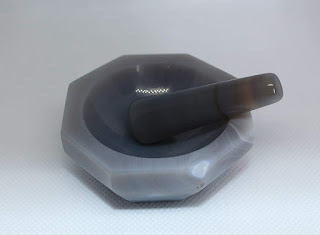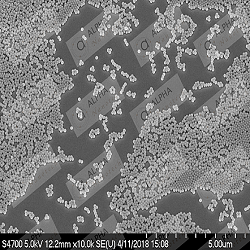Polystyrene nanoparticles are a type of synthetic polymer
particle that has a wide range of applications in research and development.
They are spherical in shape and have a narrow size distribution, which makes
them ideal for a variety of uses. Polystyrene nanoparticles are available in a
variety of sizes and surface functionalities, which allows them to be tailored
to specific applications.
One
of the most common applications of polystyrene nanoparticles is in biomedical
research. They can be used to deliver drugs, genes, and other therapeutic
agents to cells. Polystyrene nanoparticles can also be used to image cells and
tissues, and to study the interactions between cells and nanoparticles.
In
addition to their biomedical applications, polystyrene nanoparticles are also used in a variety of other fields, such as materials
science, electronics, and catalysis. For example, polystyrene nanoparticles can
be used to create new materials with unique properties, such as improved
conductivity or strength. They can also be used to develop new electronic
devices, such as solar cells and transistors.
 |
| Polystyrene Nanoparticles |
Overall,
polystyrene nanoparticles are a versatile tool that has a wide range of
applications in research and development. Their unique properties make them
ideal for a variety of tasks, and their continued development is likely to lead
to even more innovative applications in the future.
Polystyrene
nanoparticles are also used in a variety of other applications, such as:
Catalysis:
Colloidal polystyrene nanoparticles 1�m can be used as catalysts for chemical
reactions. They can be used to improve the efficiency and selectivity of
reactions, and to reduce the amount of waste produced.
Sensors:
Polystyrene nanoparticles can be used to create sensors that can detect a
variety of chemicals and biological agents. The nanoparticles can be modified
to bind to specific molecules, and then a signal is generated when the nanoparticles
bind to the target molecule.
Cosmetics:
Polystyrene nanoparticles are used in a variety of cosmetic products, such as
sunscreens and lotions. The nanoparticles can help to improve the delivery of
active ingredients to the skin, and they can also help to protect the skin from
UV radiation.
Polystyrene
nanoparticles are a versatile tool that has a wide range of applications in
research and development. Their unique properties make them ideal for a variety
of tasks, and their continued development is likely to lead to even more
innovative applications in the future.




%20Microspheres.jpg)
